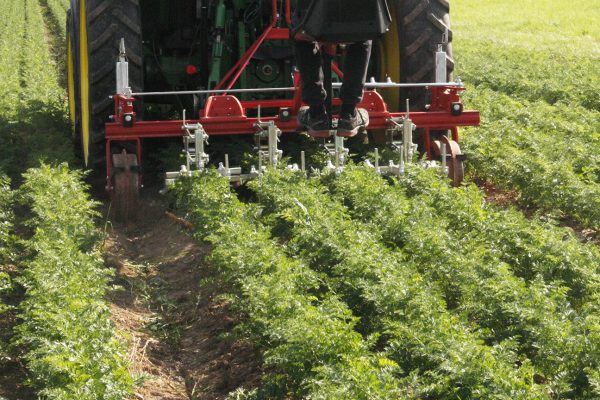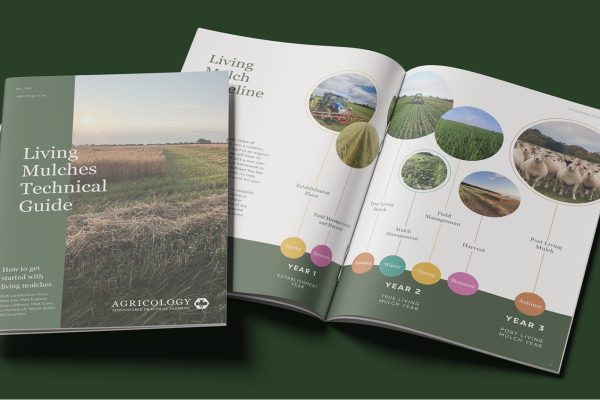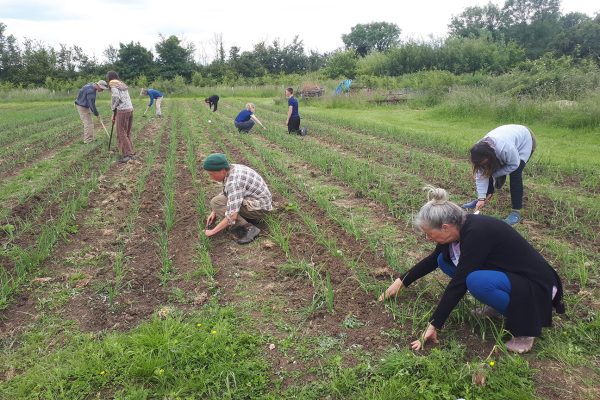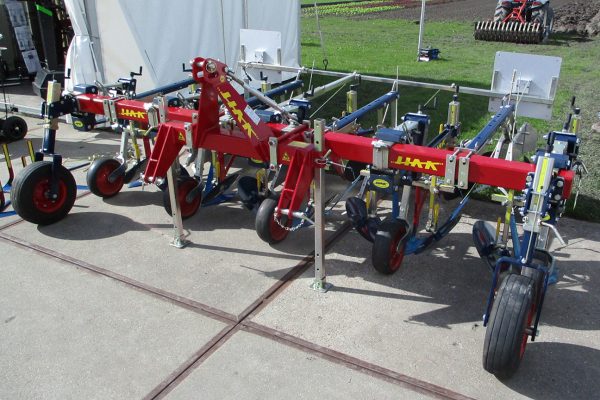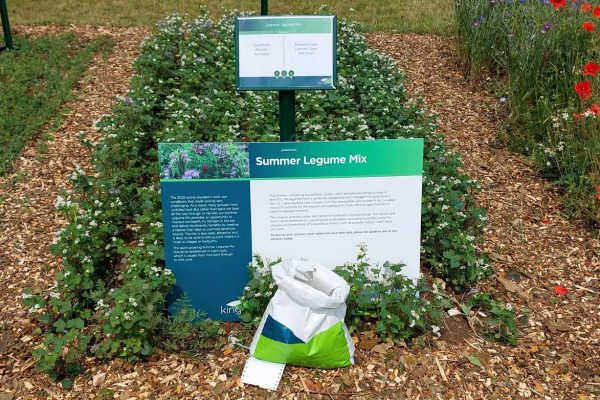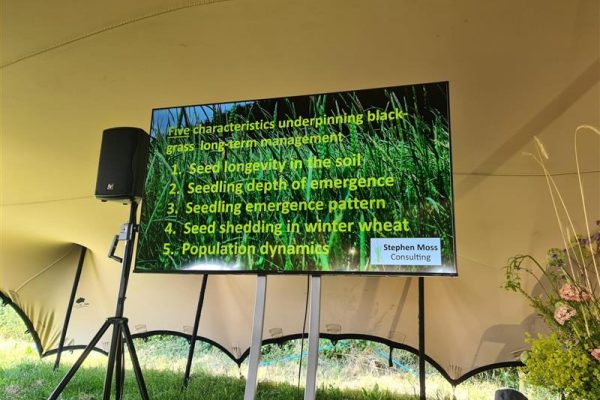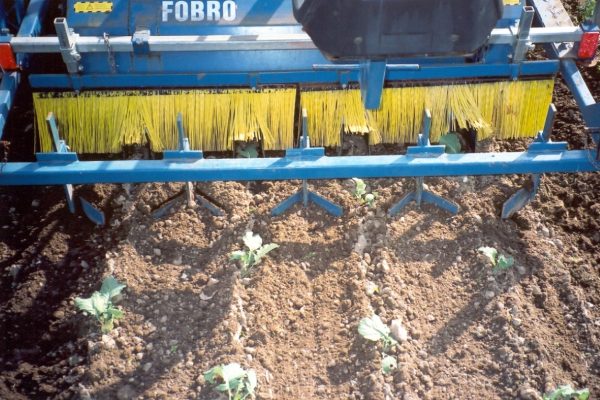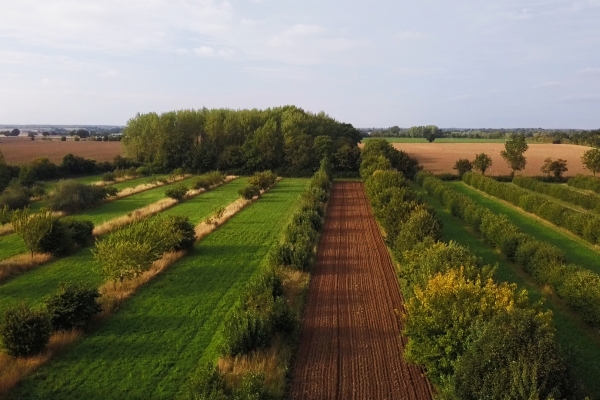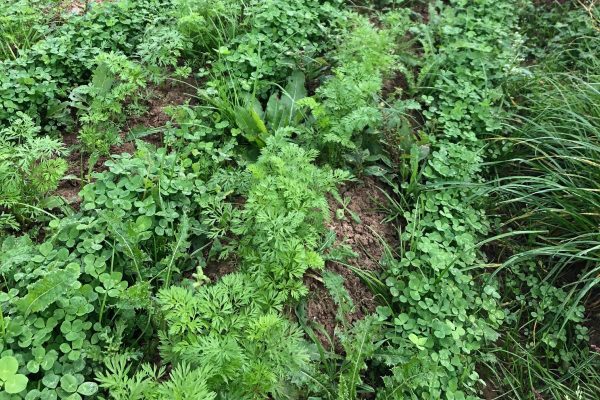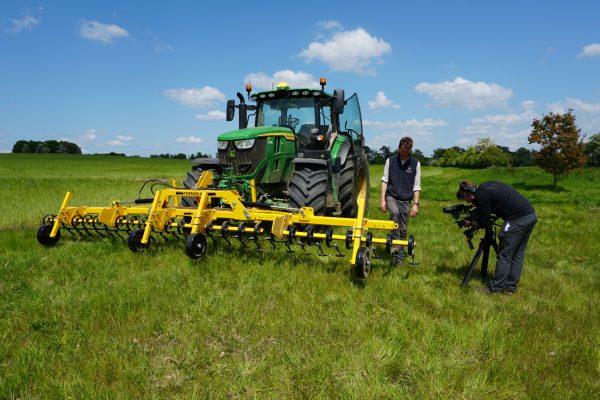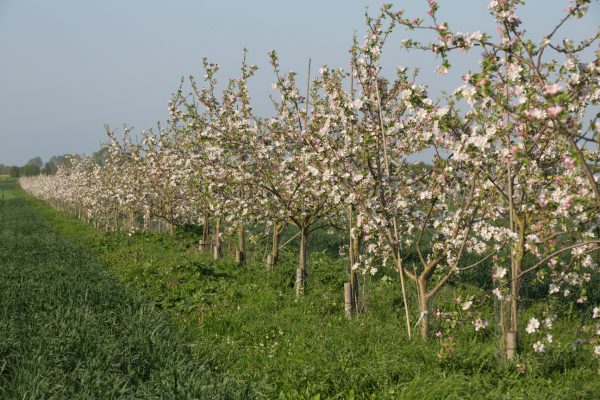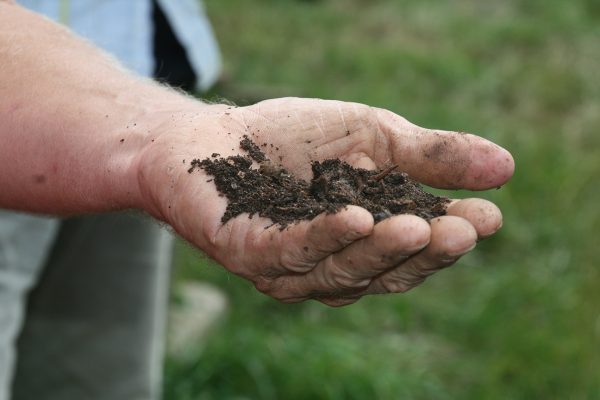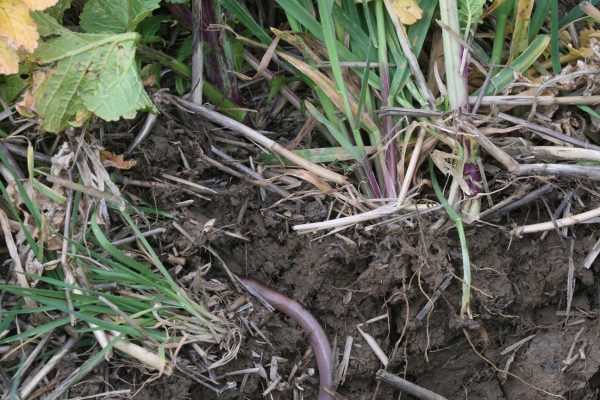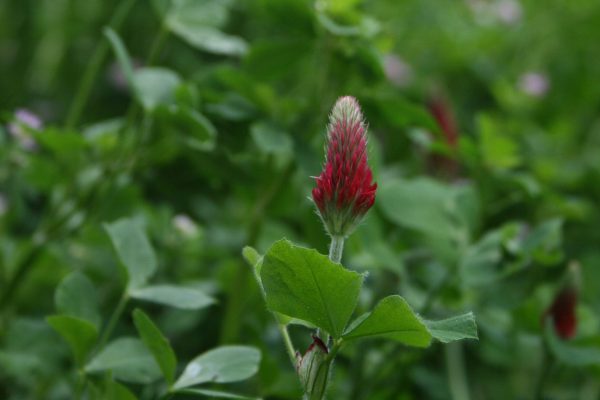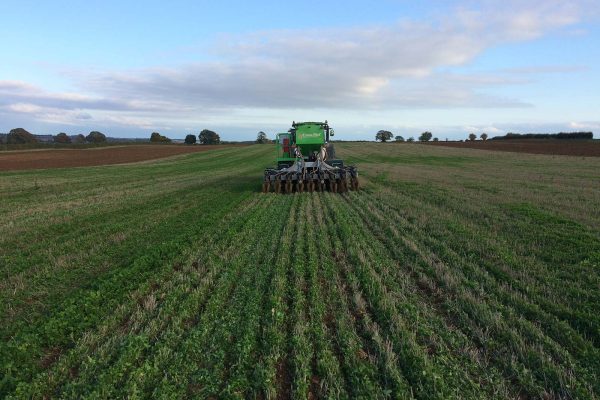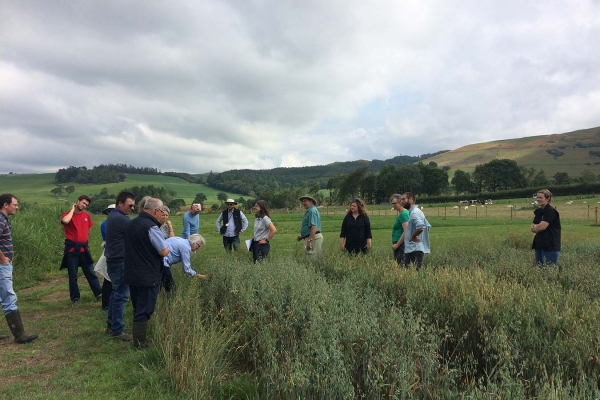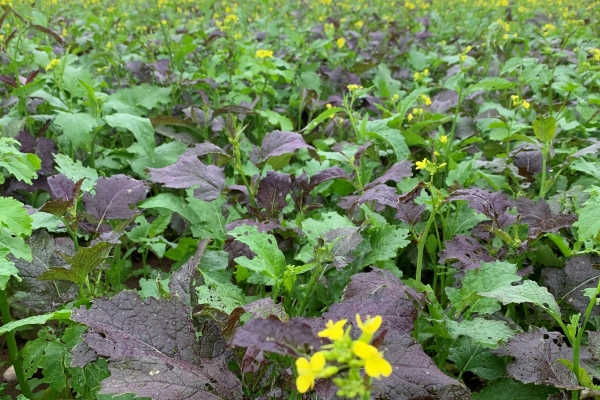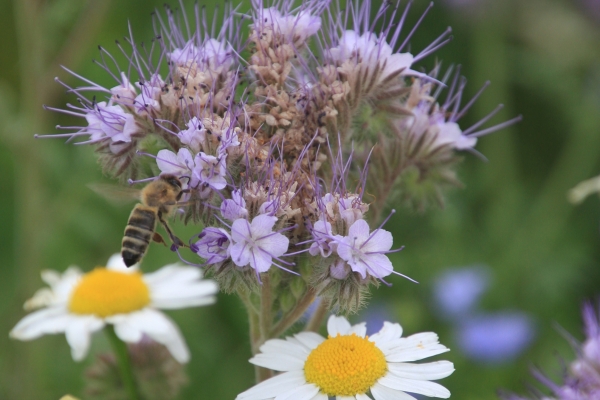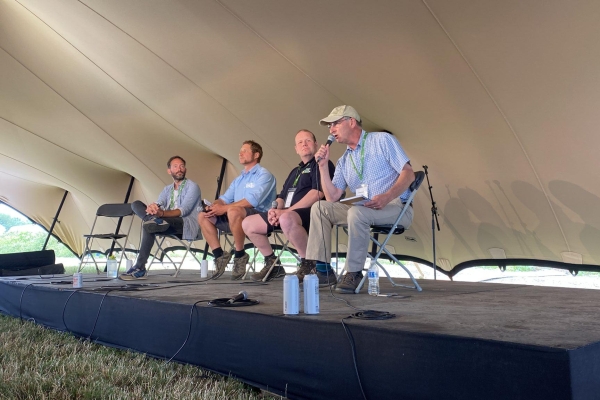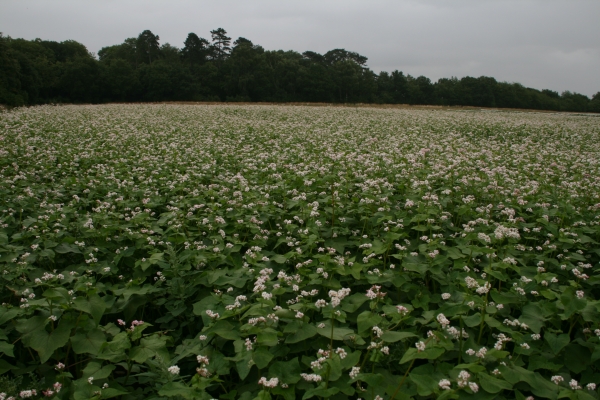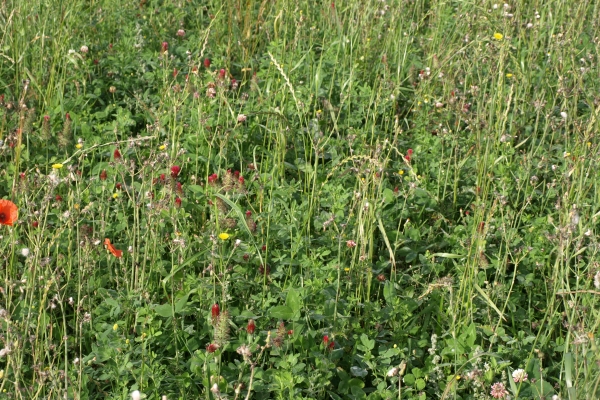Living Mulches - Technical Guide - video
In this video Matt England talks through his journey of trialling living mulches with the key learnings, observations and reflections that have come from it.
LEARN MOREIn this video Matt England talks through his journey of trialling living mulches with the key learnings, observations and reflections that have come from it.
OGA webinar with Dr Charles ‘Merf’ Merfield on the 'Big 4' in weed management: minimising weed seed rain, (proper) false seed beds, flame weeding, and row hoes
This Agricology technical guide is designed to support farmers in making informed decisions about adopting living mulches in arable systems.
This resource consists of the audio recording and presentations from a session at the Oxford Real Farming Conference 2025 which aimed to address the stigma around the use of tillage in organic and agroecological crop production.
Mark Lea talks with Matt Smee at Oxford Real Farming Conference about the learnings from 5 years of trialling living mulches in an organic arable system.
Cultivating Wisdom’ is a collection of agroecological research summaries from practitioners in the Landworkers’ Alliance’s ‘Experts in Your Field’ project.
A report on the use of ‘row hoes’ — what used to be called inter-row hoes / cultivators.
Footage of a Groundswell 2024 panel discussion organised by Agricology and The Allerton Project, with the panel and audience members sharing their experiences of growing cover crops.
How do you tackle the biggest problem facing arable farmers in the UK? This is video footage of a Groundswell 2024 session run by Agricology, borne out of a collaboration with ADAS and the Oper8 project.
A report on mini-ridgers - a highly effective weeding tool for controlling intrarow weeds through burial.
A revised new edition of this publication explaining the on-farm research carried out at the innovative and pioneering Wakelyns.
This Organic Research Centre webinar features two farmers talking about their experiences of living mulches in arable and horticulture systems.
Four short films focusing on promoting sustainable agricultural practices being used on the Waddesdon Estate and beyond.
Footage of agroforestry pioneer Stephen Briggs imparting some of his learnings from a now well-established commercial agroforestry system.
Session from 2024 Oxford Real Farming Conference featuring grower Iain Tolhurst (Tolly) and "biological nutrition" farmer Tim Parton discussing soil health at scale.
GWCT briefing from Allerton Project research on measures that can
reduce negative impacts on water quality and aquatic ecology,
and potentially reducing flood risk.
DiverIMPACTS case studies across Europe highlight why crop diversification strategies have been successful and what challenges needed to be overcome to achieve success.
The final report for Innovative Farmers field lab trials which aimed to determine the impacts of living mulches on cash crop yields and weed composition.
Final report for a project based on the premise that ancient or heritage wheats may be more suitable for organic and low-input production and better adapted to marginal environments than 'modern' high-yielding varieties.
A DiverIMPACTS practice abstract exploring the practicalities of applying the technique of biofumigation to help with pest and weed control.
This publication from the Landworkers' Alliance highlights what pioneers of agroecology in the UK are doing to create a productive and sustainable agriculture.
Footage of a discussion held at Groundswell 2022, organised by Agricology, about the impacts of reduced nitrogen use and ways in which farmers are moving away from high input systems.
Abstract created as part of the DiverIMPACTS project outlining some of the benefits that can be attained from establishing summer cover crops on sandy soils and giving useful practical recommendations.
Practice abstract created as part of the DiverIMPACTS project outlining some of the many advantages to more complex mixtures of leguminous leys and some of the challenges and key practical considerations.


